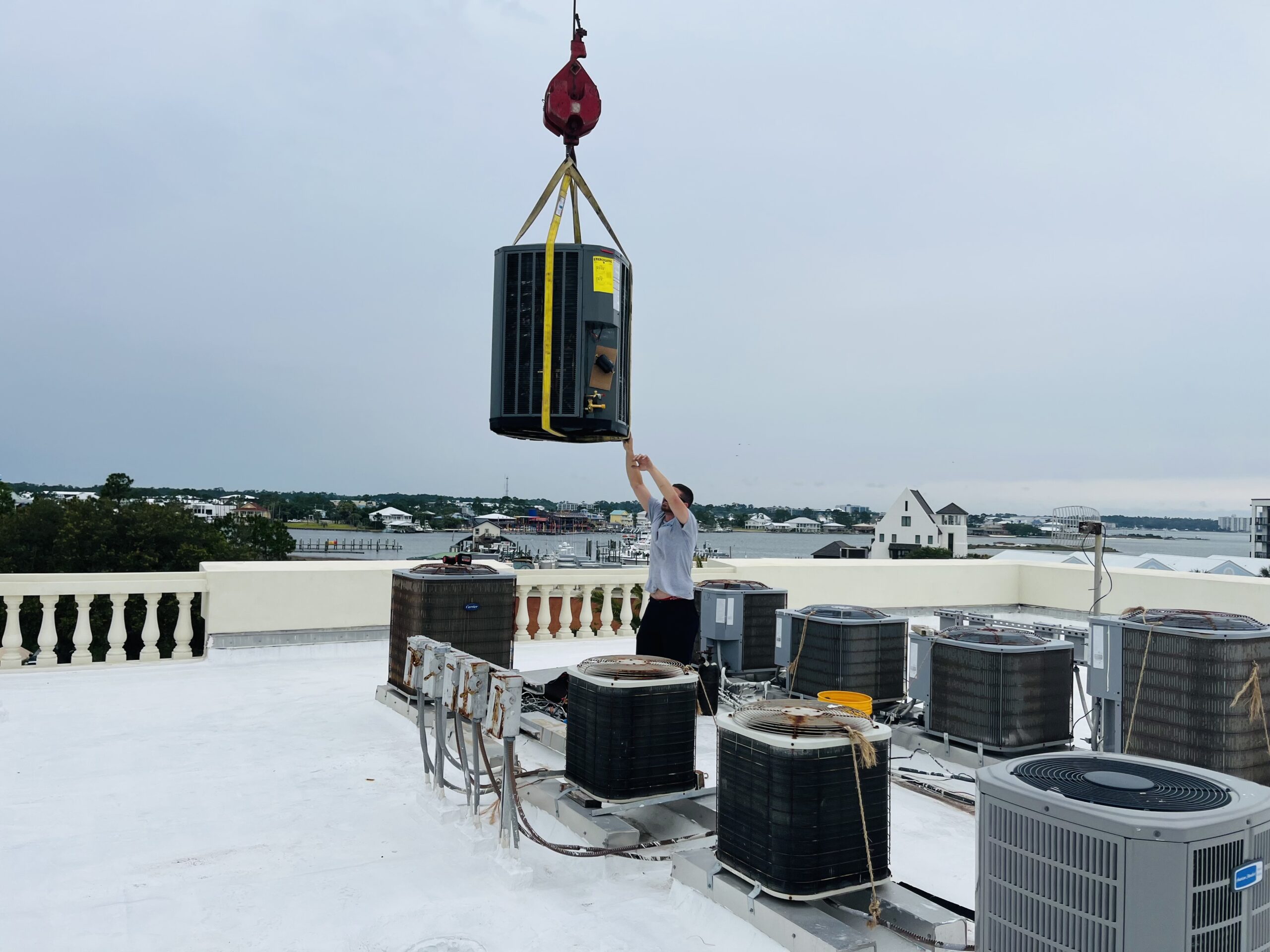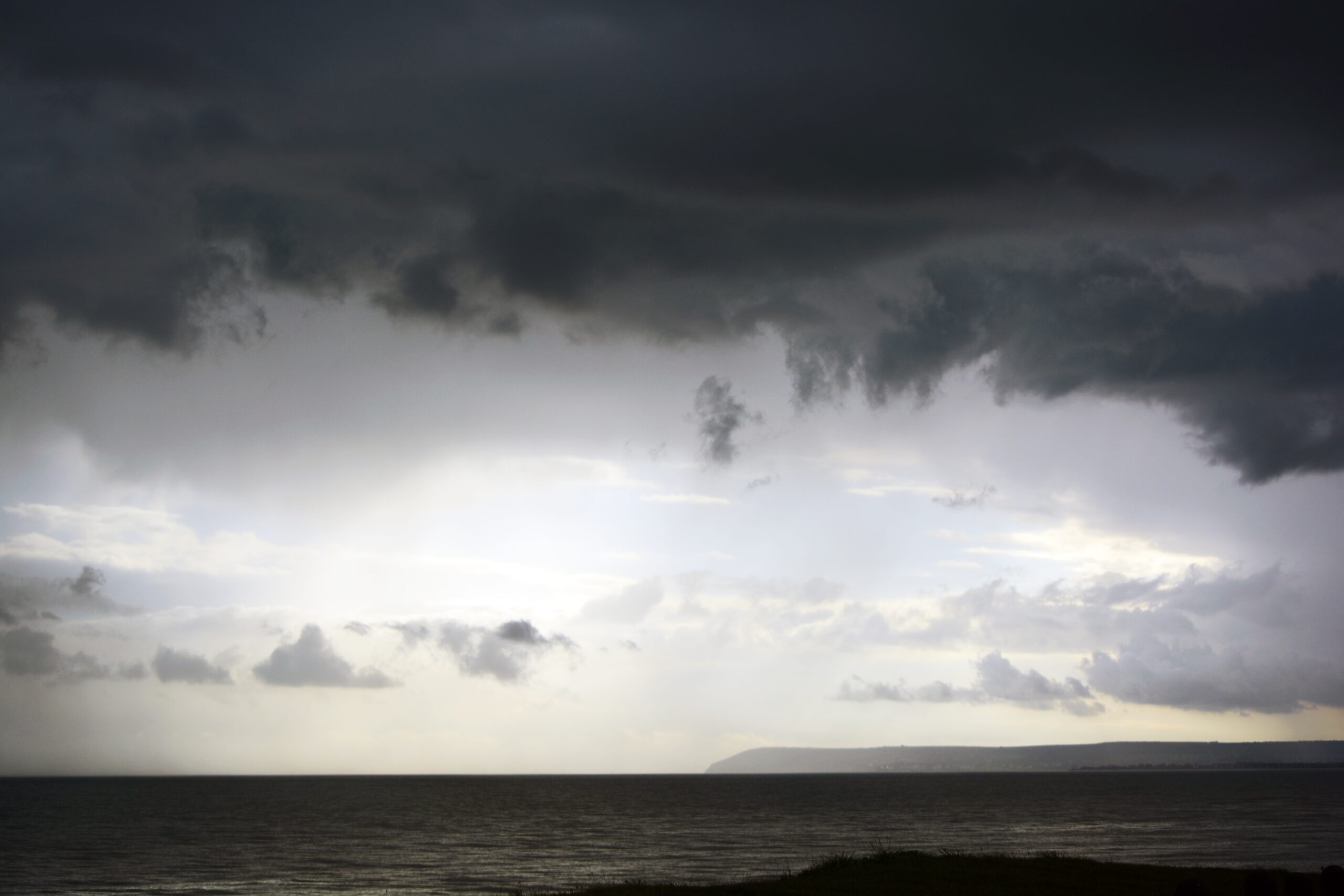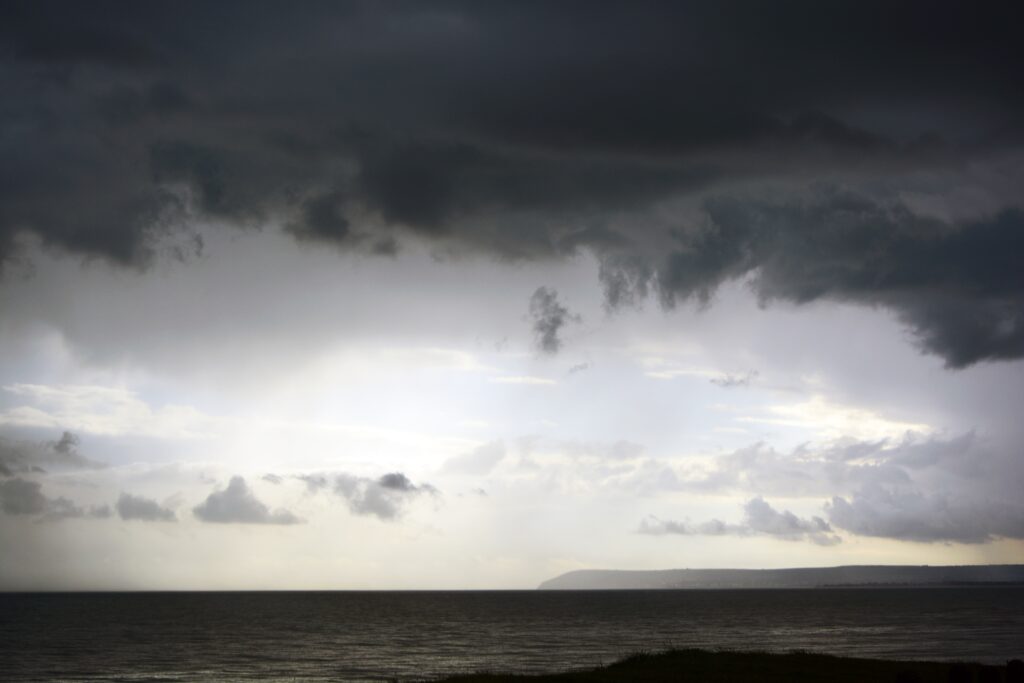Living in a charming coastal town like Gulf Shores, Alabama comes with its fair share of perks – stunning views, salty breezes, and the soothing sound of ocean waves. However, the coastal environment also poses unique challenges for your HVAC system, especially outdoor units. Here at Roberts Air Conditioning, we have years of experience working with the salty, humid Gulf Shores climate and the expertise to keep your system running smoothly! In today’s post, we’ll delve into the effects of salt water, ocean spray, and humidity on your outdoor HVAC units, and why regular tune-ups and maintenance are crucial to keep them performing optimally.
Understanding the Effects of Salt Water
The salty air that characterizes Gulf Shores is more than just a reminder of the nearby ocean; it’s a potential threat to your HVAC system. Salt water contains corrosive elements that can accelerate the deterioration of metal components in outdoor units. Over time, this corrosion can lead to reduced efficiency, increased energy consumption, and ultimately, system failure.
Learn More About Coastal HVAC Care: Explore our comprehensive HVAC maintenance services designed to combat the challenges of Gulf Shores’ coastal climate. Click here for more information.
The Silent Impact of Ocean Spray
While the soothing mist of ocean spray might be refreshing on a warm day, it can have adverse effects on your HVAC system. The tiny salt particles carried by ocean spray can settle on your unit, contributing to the corrosive process. Regular cleaning and inspections can help mitigate this impact and extend the lifespan of your outdoor HVAC unit.
Humidity’s Hand in Corrosion
Gulf Shores’ high humidity levels only amplify the challenges posed by salt water. Humidity creates an environment where corrosion thrives, making it imperative to take proactive measures to protect your HVAC investment.
Contact Us for Expert Advice: Have questions about protecting your HVAC system in a coastal environment? Contact Roberts Air Conditioning for expert advice and personalized solutions. Call (251) 288-5125 now or click here to schedule an appointment online.
Why Regular Tune-Ups are Essential
Routine maintenance is your first line of defense against the corrosive effects of salt water and humidity. Our team at Roberts Air Conditioning recommends scheduling regular tune-ups to inspect and clean your outdoor HVAC unit. This not only helps prevent corrosion but also ensures that your system operates efficiently, saving you money on energy bills.
Protect Your HVAC Investment
Safeguarding your outdoor HVAC unit from the corrosive effects of salt water and humidity is not only wise but essential for long-term performance. Don’t wait until your system shows signs of wear and tear – take proactive steps today to ensure your HVAC investment stands strong against the coastal challenge.
Schedule Your Tune-Up Today: Ensure the longevity of your outdoor HVAC unit by scheduling a professional tune-up with Roberts Air Conditioning. Call us at (251) 288-5125 or click here to schedule an appointment online.



